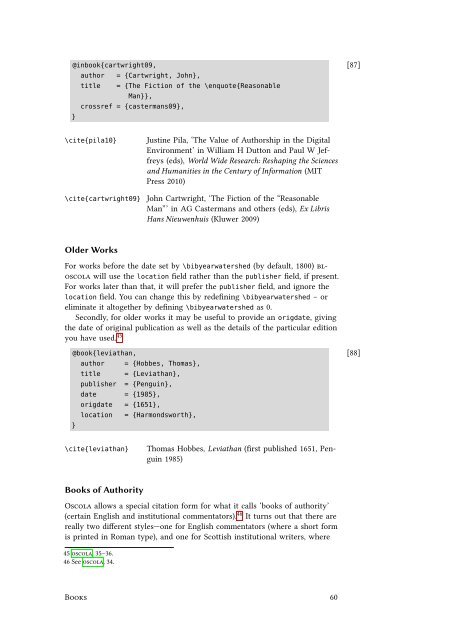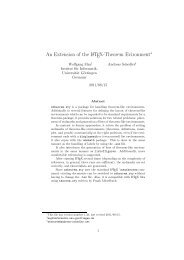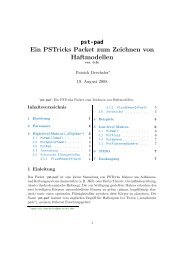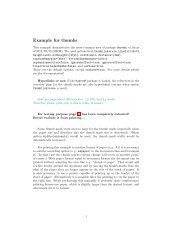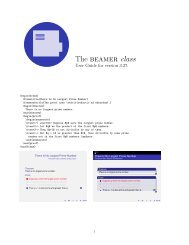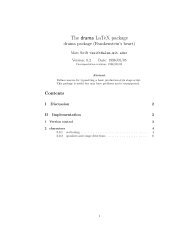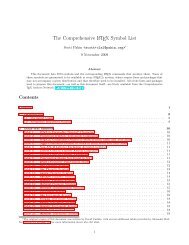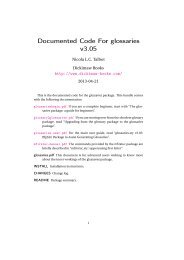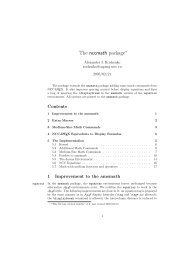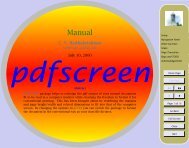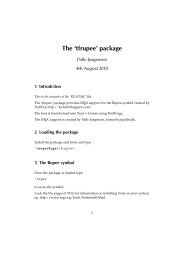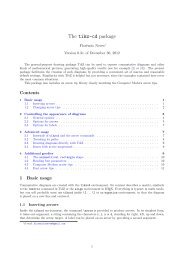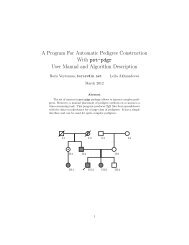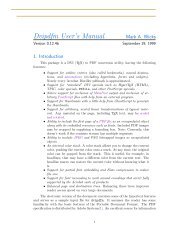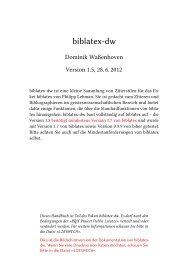oscola.pdf. - Mirrors.med.harvard.edu
oscola.pdf. - Mirrors.med.harvard.edu
oscola.pdf. - Mirrors.med.harvard.edu
You also want an ePaper? Increase the reach of your titles
YUMPU automatically turns print PDFs into web optimized ePapers that Google loves.
@inbook{cartwright09,<br />
}<br />
author = {Cartwright, John},<br />
title = {The Fiction of the \enquote{Reasonable<br />
Man}},<br />
crossref = {castermans09},<br />
\cite{pila10} Justine Pila, ‘The Value of Authorship in the Digital<br />
Environment’ in William H Dutton and Paul W Jeffreys<br />
(eds), World Wide Research: Reshaping the Sciences<br />
and Humanities in the Century of Information (MIT<br />
Press 2010)<br />
\cite{cartwright09} John Cartwright, ‘The Fiction of the “Reasonable<br />
Man”’ in AG Castermans and others (eds), Ex Libris<br />
Hans Nieuwenhuis (Kluwer 2009)<br />
Older Works<br />
For works before the date set by \bibyearwatershed (by default, 1800) bl<strong>oscola</strong><br />
will use the location field rather than the publisher field, if present.<br />
For works later than that, it will prefer the publisher field, and ignore the<br />
location field. You can change this by redefining \bibyearwatershed – or<br />
eliminate it altogether by defining \bibyearwatershed as 0.<br />
Secondly, for older works it may be useful to provide an origdate, giving<br />
the date of original publication as well as the details of the particular edition<br />
you have used. 45<br />
@book{leviathan,<br />
}<br />
author = {Hobbes, Thomas},<br />
title = {Leviathan},<br />
publisher = {Penguin},<br />
date = {1985},<br />
origdate = {1651},<br />
location = {Harmondsworth},<br />
\cite{leviathan} Thomas Hobbes, Leviathan (first published 1651, Penguin<br />
1985)<br />
Books of Authority<br />
Oscola allows a special citation form for what it calls ‘books of authority’<br />
(certain English and institutional commentators). 46 It turns out that there are<br />
really two different styles—one for English commentators (where a short form<br />
is printed in Roman type), and one for Scottish institutional writers, where<br />
45 <strong>oscola</strong>, 35–36.<br />
46 See <strong>oscola</strong>, 34.<br />
Books 60<br />
[87]<br />
[88]


